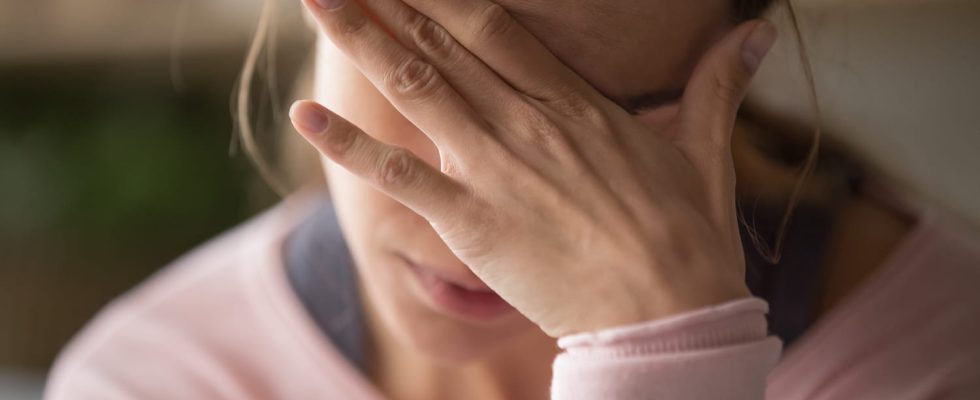Difficulty concentrating, memorizing, organizing or understanding the emotions of others… Schizophrenia is not easy to diagnose as its symptoms are varied.
Schizophrenia is one of the psychotic disorders. It is a more widespread disease than we think since it affects approximately 660,000 people in France* but it remains little known. It is characterized by a loss of contact with reality and an loss of consistency in the affected person. The disorder generally appears between 15 and 25 years old and has an impact on the ability to manage daily life. Several factors can contribute to the onset of schizophrenia. First of all genetic factors, people do not inherit the disease as such, but with greater vulnerability than the general population. This vulnerability can then be revealed by stressors. “In the absence of stressors, this vulnerability is much less likely to express itself” explains Professor Nicolas Franck, psychiatrist. Among the stress factors we find the fact of do not sleephaving to manage a lot of emotions or even the consumption of cannabis. The 2024 edition of Schizophrenia Days takes place from March 18 to 22. The opportunity to take stock of the symptoms of this disease associated with several misconceptions.
Symptoms that should alert
There are three categories of symptoms of schizophrenia:
- There positive dimension : among the symptoms which affect feeling and thinking we find verbal hallucinations (the fact of hearing voices when no one is speaking), cenesthetic hallucinations (imaginary bodily sensations), the impression that one’s own actions are controlled by an external force, thoughts imposed by an external force, a feeling that others are reading or stealing one’s thoughts, as well as delusional ideas.
- There negative dimension : it is characterized by a lack of energyan inability to take action, an inability to feel pleasure, a loss of the ability to take initiative, as well as a inability to take care of oneself.
- There disorganization : alteration of the ability to structure one’s actions, the content of one’s thoughts and one’s speech towards a goal and taking into account the context, a language little or not understandable, the use of inappropriate or invented terms, abrupt stops in speech as well as offbeat behavior or language.
To know that there is no no typical profile as for people with schizophrenia. Two people diagnosed may also not have no symptoms in common. “Some people are rather delusional and hallucinating while others have neither delusions nor hallucinations but are disorganized. diagnosis is not based on any objective criteria but on theassociation of suggestive symptoms and their impact” explains Professor Nicolas Franck, psychiatrist. Schizophrenia can cause difficulty coping with everyday life because its symptoms are often associated with difficulty concentrating, remembering, organizing or understanding the emotions of others. “Psychiatrists must encourage all people with persistent psychiatric manifestations to consult for detect signs suggestive of schizophrenia and thus be able to put vulnerable people in protective conditions” adds the expert.
Can we cure it?
Despite these restrictive symptoms, a recovery is possible. “It’s important to believeshares Professor Nicolas Franck. We have the impression that schizophrenia is something extremely severe from which people will not recover. But this is false. We must realize that anyone with schizophrenia can move towards recovery.” The duration to achieve this recovery differs from one person to another, it is impossible to predict. Recovery is also not cure, rather the affected person will learn to deal with your symptoms For find balance and a way of life which suit him. Our expert insists on the need for inclusive society for the well-being of these people: “By becoming more tolerantwe will not only allow these people to be happy and get wellbut also avoid depriving yourself of their qualities.”
*Figure given by the PositiveMinders Organization
Thanks to Professor Nicolas Franck, psychiatrist, Head of the Left Bank Center at Vinatier – University Psychiatry Lyon Métropole and author of “Schizophrenia, recognizing and treating it” and, with Frederic Haesebaert: “Protecting your mental health after the crisis” published by Odile Jacob.
